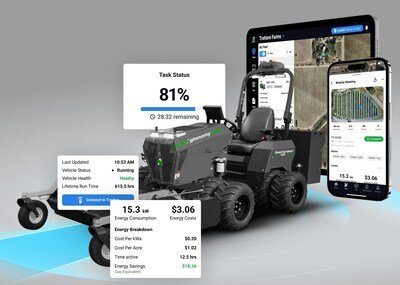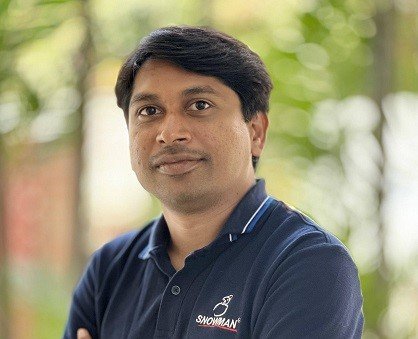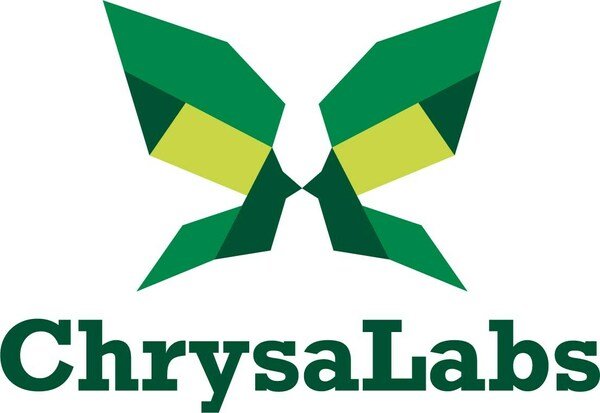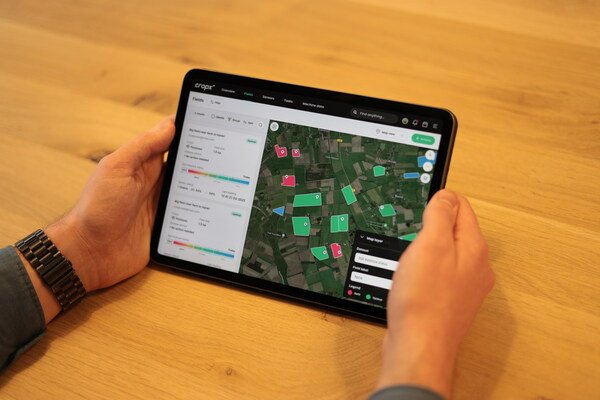Under the Microalgae Biorefinery Model, multiple research projects are underway on Renewable and Sustainable Energy.
The School of Energy Science and Engineering, Dept of Chemical Engineering, Dept of Bioscience and Bioengineering at the Indian Institute of Technology Guwahati are working actively to make major contribution in building a sustainable future. Under the Microalgae Biorefinery Model, multiple research projects are underway on Renewable and Sustainable Energy.
The rapid depletion of fossil fuels, anthropogenic emissions and ever-increasing energy consumption has triggered an increasing interest in the alternate fuels based on renewable resources. Researchers worldwide have shown that microalgae-based treatment of wastewater can be coupled with simultaneous production of various types of fuels as well as other value-added products under a biorefinery concept.
Highlighting the need for research on sustainable development, Parameswar K Iyer, Officiating Director, IIT Guwahati said, “Alternate fuel production is the need of the hour. IITG is working since last 25 years in this domain where various researchers have contributed significantly in developing a microalgae based biorefinery model under which waste treatment as well as fuel productions can be carried out simultaneously. Efforts to utilise the rich biomass of NE reason for bioethanol/ methanol/butanol production as an alternate to fossil fuels”
Some of the major research highlights on related topic include –
- Research on transforming residual microalgae/biomass into energy fuel and chemicals
Vaibhav V Goud, Head, School of Energy Science and Engineering, IIT Guwahati, and Professor, Department of Chemical Engineering, IIT Guwahati, and his research team have formulated an efficient strategy that transforms residual microalgae/biomass into energy fuel and chemicals. By implementing specific alteration strategies, such as inhibiting steps, researchers have diverted the process cycle to recover the product of choice (H 2 , biogas, and chemicals). As per their findings, the combined use of residual microalgae with biomass (rice straw) helped enhance energy recovery. It also provides a sustainable approach for developing a biomass/microalgae-based biorefinery for producing energy fuels and chemicals.
- Research on Integration of wastewater treatment and high-value biofuel production
Kaustubha Mohanty, Adjunct Faculty, School of Energy Science and Engineering and Professor, Department of Chemical Engineering and his research team have developed an advanced microalgal biorefinery model that integrates wastewater treatment and high-value biofuel production via hydrothermal liquefaction (HTL) where domestic sewage sludge and microalgal biomass are used as co-feedstock. The Co-HTL used microalgal biomass and sewage sludge as cofeedstock, resulting in 40 per cent biocrude yield and properties comparable to petroleum crude. Their developed biorefinery process theoretical conversion and mass balance suggested that one million domestic sewage wastewaters will deliver ̴ 2,500 kg biomass feedstock which further resulted in 980 Kg biocrude followed by ̴ 5,000 kg CO 2 sequestration. The biomass can provide 600 kg biofuels to support a city bus to run ten return trips (60 km) for 26 days with 20 percent blending (B20) with commercial diesel.
The research team has collaborated with eminent Scientists from national and international organisations such as IIT Kharagpur, CSIR-IICT Hyderabad, and Technical University Denmark, to develop an advanced biorefinery process. The industry partners for technology transfer include Purabi Diary Assam, Symbiosis Center, Denmark and HPCL. Presently the team is working on pilot-scale demonstrations of advanced microalgal biorefinery processes to generate biocrude.
- Research on producing bioalcohols from waste invasive weeds
V S Moholkar, Adjunct faculty of School of Energy Science and Engineering and Professor, Department of Chemical Engineering at IIT Guwahati and his research group have developed lab-scale know-how for producing bioalcohols like bioethanol and biobutanol from waste invasive weeds that are ubiquitous in northeast India. Moholkar’s group has developed the sonic fermentation technique for synthesis of bioalcohols from mixed invasive weeds, which is not only faster than conventional fermentation, but also gives higher yields. Especially, biobutanol can be blended with petrol up to 80 percent due to very similar properties as petrol.
Elaborating on his research Moholkar said, India has mandate of achieving 10 percent ethanol blends with petrol. Our know-how has not only provided a viable solution for achieving energy security but has also demonstrated the concept of control through utilisation for the invasive weeds, which cause severe damage to terrestrial and aquatic ecosystems.
- Research on efficiently producing liquid hydrocarbon oil
Debasish Das, Associated Faculty of School of Energy Science and Engineering and Professor, Department of Biosciences & Bioengineering and his research group in collaboration with Oil and Natural Gas Corporation (ONGC) has demonstrated a pilot scale technology for production of liquid hydrocarbon oil ALGLIQOL, with a potential to be utilised as transportation fuel via hydrothermal liquification (HTL) of microalgae biomass grown on CO 2 . The technology has been developed by integrating: Process engineering strategy for high cell density cultivation of microalgae biomass; low cost scalable harvesting of biomass and catalytic upgradation of bio-crude oil followed by fractional distillation.
Renewable energy provides reliable power supplies and fuel diversification, which enhance energy security and lower risk of fuel spills while reducing the need for imported fuels. Aligning with the themes of G20 Summit 2023 presided over by India, IIT Guwahati is making its best efforts for enhanced energy security, lower risk of fuel spills for a better and secure future.
Under the Microalgae Biorefinery Model, multiple research














